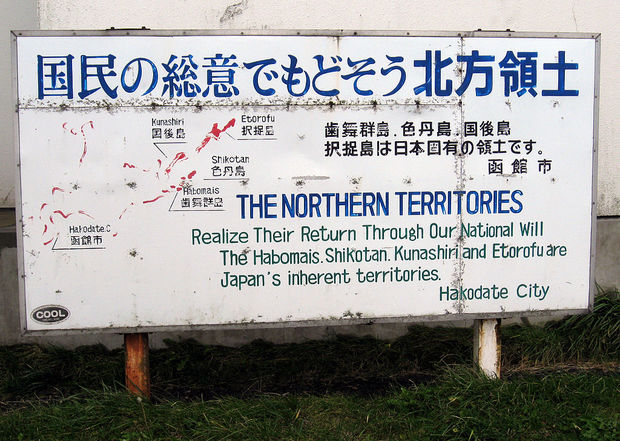Various issues to be resolved to launch joint projects on disputed Kuril Islands
Japan and Russia are continuing cooperation in order to settle a protracted dispute over four islands north-east of Hokkaido. The administration of Prime Minister Shinzo Abe believes that joint economic activity will facilitate the solution of territorial problems. However, the Japanese side considers that the progress is slow because local officials want to use their own laws for any joint economic activity on the disputed territories.
A Japanese delegation that visited the Southern Kurils (disputed islands in the Sea of Okhotsk that Japan calls the Northern Territories) to study potential joint economic projects with Russia found many hurdles that would have to be cleared, says The Asahi Shimbun. The group of Japanese officials and individuals visited 64 locations on three of four disputed islands including fish farming facilities, tourist spots and medical facilities. The group's representatives said that the islands have potential for tourism and seafood processing.
According to the delegation's head Eiichi Hasegawa, special adviser to Prime Minister Shinzo Abe, the visit made clear ''various issues that have to be resolved in terms of the two nations' legal systems''. The lack of regular ferry service between Hokkaido and the islands is a major barrier to any joint economic activity. Speaking with Oleg Kozhemyako, governor of Sakhalin Oblast, Hasegawa said that discussions would have to be held on the legal framework for smoother travel between Japan and the territories. Hasegawa is planning to meet with Abe and Minister for Foreign Affairs of Japan Fumio Kishida to discuss how to proceed with future talks with Russia.

Kozhemyako called the group's visit an important first step towards considering projects that would be beneficial to both nations. He was also optimistic about the establishment of joint international ventures and the expansion of a programme allowing Japanese and Russian citizens to visit each other's nation without visas. Russian officials anticipate that Japanese funds and technologies can help job creation.
However, the visit ended without narrowing possible joint projects or even a timetable for the next visit, says the media. An unnamed Japanese government source said that the group members didn't succeed in their research but spent most of the time simply observing the various businesses operating in the Northern Territories. The Russian side demands that all joint economic activities must be conducted in accordance with Russian laws.